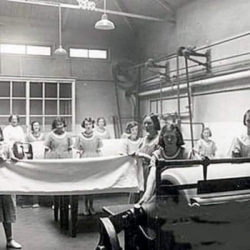
Ireland has a rich history with several important milestones. Here are some of the significant events and developments in Irish history:
-
Early History: Ireland has a long history dating back to ancient times, including Celtic settlements and the arrival of Christianity in the 5th century. The Book of Kells, a beautifully illuminated manuscript, is an example of Ireland's early cultural achievements.
-
Viking Invasions: In the 9th and 10th centuries, Ireland experienced Viking invasions and the establishment of Viking settlements in places like Dublin and Waterford.
-
Norman Invasion: In the 12th century, the Normans invaded Ireland, leading to the Anglo-Norman control of the country.
-
The Plantations: In the 16th and 17th centuries, English and Scottish settlers were encouraged to establish plantations in Ireland, which led to tensions and conflicts with the native Irish population.
-
Cromwell's Conquest: Oliver Cromwell's campaign in the mid-17th century had a significant impact on Ireland, including the Cromwellian Settlement and the harsh treatment of Irish Catholics.
-
The Great Famine: The mid-19th century saw the devastating Irish Potato Famine, which resulted in mass starvation, emigration, and a significant population decline.
-
Home Rule Movement: The late 19th and early 20th centuries saw the rise of the Home Rule movement, with efforts to gain self-governance for Ireland within the United Kingdom.
-
Easter Rising: In 1916, the Easter Rising took place in Dublin, marking the beginning of the struggle for Irish independence. It led to the eventual establishment of the Irish Free State in 1922.
-
Irish Civil War: The Irish Civil War followed the establishment of the Irish Free State, primarily over the terms of the Anglo-Irish Treaty. It ended in 1923 with the victory of pro-Treaty forces.
-
Republic of Ireland: In 1949, Ireland officially became a republic, severing its remaining ties with the British monarchy.
-
The Troubles: From the late 1960s to 1998, Northern Ireland experienced a period of conflict known as "The Troubles," involving sectarian violence and political struggles between nationalists and unionists. The Good Friday Agreement in 1998 marked a significant step towards peace and stability in Northern Ireland.
-
Celtic Tiger Economy: In the late 20th century, Ireland experienced rapid economic growth, earning it the nickname "Celtic Tiger." The country transformed into a modern, prosperous nation.
-
EU Membership: Ireland joined the European Economic Community (now the European Union) in 1973, which had a significant impact on its economy and international relations.
These milestones represent just a portion of Ireland's complex and multifaceted history. The country has made significant cultural, political, and economic contributions to the world and continues to play an important role in global affairs.

































